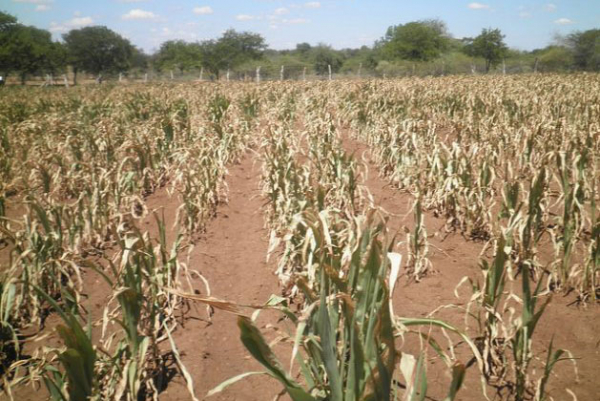
Drought, Cyclone Idai and “policy missteps” drove Zimbabwe’s economic contraction in 2019, the first in over a decade, the International Monetary Fund (IMF) says.
— newZWire
The IMF projected the economy to slump by 7,1% in 2019, before recovering by 2,5% in 2020. The drought, said by the United Nations to be the worst in 40 years, hurt agriculture and power generation, and combined with poor government policy to lead the country to the first economic contraction since 2008.
“Our preliminary estimates . . . indicate that gross domestic product (GDP) growth in 2019 will be steeply negative as the effects of drought on agriculture and electricity impact, the impact of Cyclone Idai and policy, some policy missteps present headwinds to the economy,” IMF spokesman Gerry Rice told reporters in Washington on Thursday.
He said the IMF remained in contact with Zimbabwe on its reform plan, including through the Staff Monitored Programme (SMP) and a recent meeting in Davos between Finance minister Mthuli Ncube and IMF managing director Kristalina Georgieva.
“The IMF has a staff monitored programme with Zimbabwe. We had a mission to Harare in December to conclude discussions on our regular annual economic consultation, the Article IV,” Rice said.
“And Kristalina Georgieva actually met with the Finance minister of Zimbabwe just a few days ago in Davos and they discussed latest economic developments there too. So we are in close contact with the authorities to assist and co-ordinate reform and stabilisation efforts.”
Missed targets
- Chamisa under fire over US$120K donation
- Mavhunga puts DeMbare into Chibuku quarterfinals
- Pension funds bet on Cabora Bassa oilfields
- Councils defy govt fire tender directive
Keep Reading
The drought has decimated Zimbabwe’s crop, leaving over seven million Zimbabweans at risk of starvation and forcing government to increase spending on grain imports.
In 2019, the government abandoned the 1:1 currency peg, partially floating the Zimbabwe dollar. This set off the currency depreciation that, together with the drought and forex shortages, have driven inflation, which has risen to over 500% by some estimates.
An SMP agreed with the IMF in 2019 was seen as a key step to help Zimbabwe get back on the path to fiscal reform. However, the economic crisis has forced Zimbabwe off many of the targets under the programme. A report on the IMF’s last Article IV mission is expected shortly.
“But again we are engaged with Zimbabwe and looking to support Zimbabwe and the Zimbabwean people as much as we can,” Rice said.
The IMF’s 2019 projections were mostly in line with those of the United Nations and World Bank, although the UN does not expect a recovery this year due to continuing drought and government economic policy. The UN saw Zimbabwe’s economy down 5,5% in 2019 and expects that it will fall by a further 2,5% 2020.
The World Bank says the economy fell 7,5% in 2019, but may rebound 2,7% in 2020. Government projected a 6,5% decline in 2019 and 3% growth in 2020.











